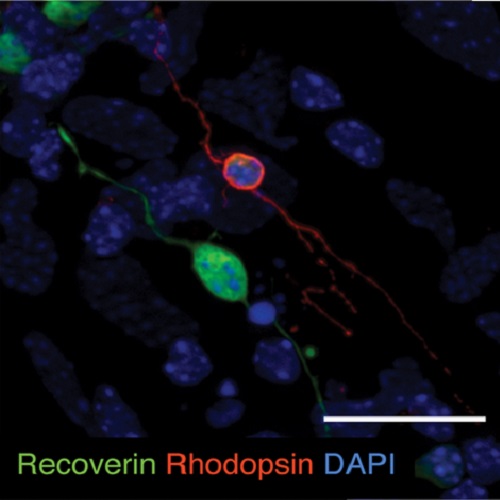In vitro expanded stem cells from the developing retina fail to generate photoreceptors but differentiate into myelinating oligodendrocytes.
Cell transplantation to treat retinal degenerative diseases represents an option for the replacement of lost photoreceptor cells. In vitro expandable cells isolated from the developing mammalian retina have been suggested as a potential source for the generation of high numbers of donor photoreceptors. In this study we used standardized culture conditions based on the presence of the mitogens FGF-2 and EGF to generate high numbers of cells in vitro from the developing mouse retina. These presumptive 'retinal stem cells' ('RSCs') can be propagated as monolayer cultures over multiple passages, express markers of undifferentiated neural cells, and generate neuronal and glial cell types upon withdrawal of mitogens in vitro or following transplantation into the adult mouse retina. The proportion of neuronal differentiation can be significantly increased by stepwise removal of mitogens and inhibition of the notch signaling pathway. However, 'RSCs', by contrast to their primary counterparts in vivo, i.e. retinal progenitor cells, loose the expression of retina-specific progenitor markers like Rax and Chx10 after passaging and fail to differentiate into photoreceptors both in vitro or after intraretinal transplantation. Notably, 'RSCs' can be induced to differentiate into myelinating oligodendrocytes, a cell type not generated by primary retinal progenitor cells. Based on these findings we conclude that 'RSCs' expanded in high concentrations of FGF-2 and EGF loose their retinal identity and acquire features of in vitro expandable neural stem-like cells making them an inappropriate cell source for strategies aimed at replacing photoreceptor cells in the degenerated retina.

- PLoS ONE 2012 Jul 25;7(7):e41798
- 2012
- Developmental Biology
- 22848612
- PubMed
Enabled by:
